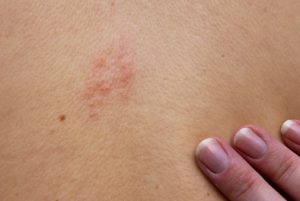
Study author, Caroline Minassian, Ph.D., explained, “The study highlights when patients with shingles may be most vulnerable. If we know when these events are more likely to happen, this may potentially help to prevent strokes and heart attacks in older people.” Shingles is caused by the same virus as chicken pox (varicella zoster) and those who previously had chicken pox have a heightened risk of developing shingles. It is common for seniors to develop shingles, but complications are often limited if the person received the shingles vaccination or if treatment is conducted early on.
Researchers suggest that one million Americans annually develop shingles. The vaccine not only reduces the risk of shingles, but even if a person develops shingles it reduces symptoms and future complications as well.
Although the researchers found a link between shingles and stroke and heart attack risk, they are still unaware why the link exists, so further studies are required to determine cause and effect. Minassian did suggest, “However, possible reasons might include the overall higher level of inflammation in the body associated with a viral infection, or [virus-induced] blood vessel damage. Acute increases in blood pressure relating to shingles-associated pain or stress may also play a role.”
Previous study shows shingles rash linked to higher risk of stroke in younger adults
The study involved 106,000 shingles studies, which the researchers reviewed and compared with 213,000 control patients without shingles.
Researchers found that those under the age of 40 had an increased risk of stroke by 74 percent and heart attack risk increased by 50 percent. Dr. Breuer suggests that shingles may increase the risk of stroke and heart attack because it causes inflammation in certain blood vessels, and those who have other risk factors for stroke or heart attack are at even higher risk. The researchers suggest that those who experienced shingles prior to the age of 40 should get themselves checked for stroke and heart attack risk.
Complications of shingles beside heart attack
Aside from an increased risk of stroke and heart attack, shingles can contribute to many other health complications as well, including:
- Postherpetic neuralgia (PHN) – a long-lasting pain
- Disseminated zoster – blistery rash
- Cranial nerve complications – inflammation and pain of the eyes, intense ear pain, inflammation and blockage of blood vessels
- Scarring and skin discoloration
- Bacterial infections
- Blisters
- Muscle weakness of affected area
Related: Is Shingles Contagious?
Treatment and home remedies for shingles
- Applying cold or wet compresses to minimize redness and itchiness
- Applying topical soothing lotions
- Applying topical pain-relieving lotions
- Taking care of skin sores – this involves proper cleaning of the area, keeping the area dry, applying cornstarch or baking soda to dry out blisters
Using home remedies, along with medical treatment, can help speed up recovery and minimize discomfort caused by shingles. Early treatment is best in order to help reduce severity and the risk of shingles-related complications.